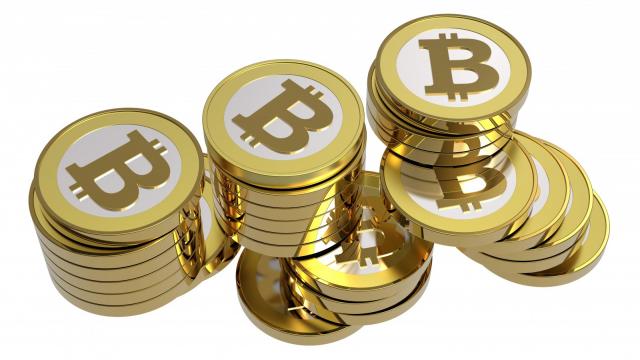
While conventional currencies are taking a tumble there is one currency bucking the trend –- the BitCoin which has more than doubled in value in the past few weeks.
This is electronic money, a crypto-currency that does away with the need for banks by combining a limited quantity digital currency with state of the art cryptographic security and a peer-to-peer network. All transactions are irreversible. It is also free, unlike Visa or PayPal.
Not just for paying off hit men or buying industrial quantities of horse tranquillizer, the BitCoin can be used for all sorts of online transactions from ordering flowers to buying karaoke equipment.
Back in December 2010, one BitCoin was worth about US$0.22. Today, it is trading at over US$100 and continues to rise rapidly. See the BitCoin Exchange Rate website.
How does it work? It’s a little complex but in essence BitCoin is open-source software invented by Satoshi Nakamoto that logs all transactions on the network and records them on the so-called Blockchain. The first BitCoins were issued on January 3, 1998.
The number of BitCoins is limited by the design of the network. There will never be more than 21 million BitCoins which means they are likely to increase in value unlike conventional currencies.
The value of a BitCoin is determined by the automated online markets which match buyers and their bid prices with sellers and their asking prices.
BitCoin transactions are anonymous and identified only by their BitCoin address, which need not link to any existing conventional account. You can have as many BitCoin addresses as you wish.
Because there is no single issuing authority, there is no single point of failure which, in today’s financial climate, can only be a bonus. If your bank goes under you may lose your money but it’s unlikely that the Internet will collapse any time soon and take down the BitCoin network.
Payments are sent with one click like email and are just as swift. Accounts cannot be frozen and nobody need know what you are buying. BitCoin recognizes no national boundaries nor has limitations on where money can be sent.
You can use BitCoins online for millions of items and even make donations to charities. You can also make purchases at physical shops and restaurants that accept them. See the BitCoin trade wiki for a list of online and real world businesses.
BitCoins can be purchased in the same way that you buy any currency. You can ask your bank to buy them for you (but not many banks are up to speed on BitCoins yet) or pay via Visa or Western Union, etc. They can also be bought and sold with a mobile app. For a full list of exchanges, see the wiki on Buying BitCoins.
The simplest solution is to visit the Blockchain website and start a new wallet. From there you can transfer money from most bank accounts to the wallet by following the on-screen instructions.
BitCoins are also infinitely divisible. You can send someone 0.00000001 of a BitCoin for a very small item or any amount you hold.
However, with all other financial transactions globally passing through US-owned computers and therefore under constant observation by the agencies, the BitCoin is likely to become a target for government attention soon.
Read more by Conrad Jaeger at Techtivist.com and follow him at @conradjaeger.
3 WAYS TO SHOW YOUR SUPPORT
- Log in to post comments












